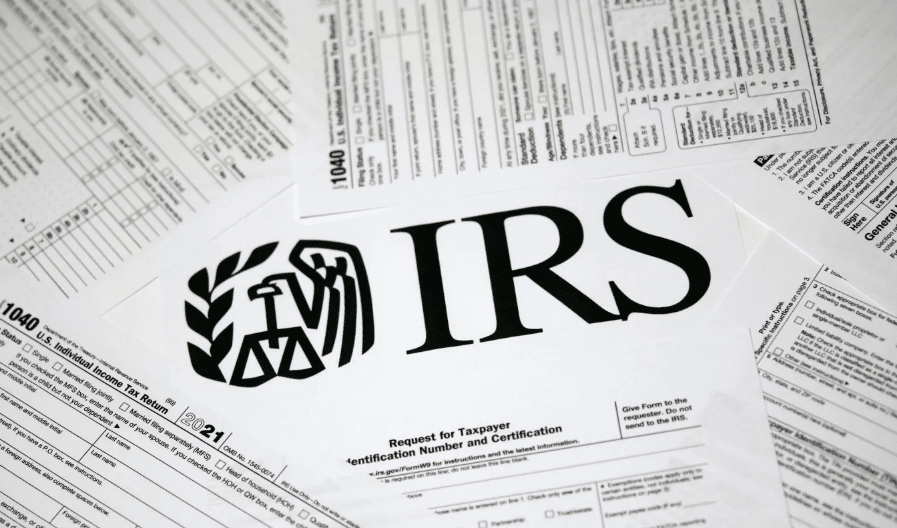- The U.S. House overwhelmingly voted 292-132 to repeal the IRS DeFi broker rule, marking a major crypto industry victory.
- The rule sought to classify DeFi front-end operators as brokers, imposing strict KYC and tax reporting requirements.
- Critics argued the regulation was impractical for DeFi platforms, which operate without centralized control over user data.
The U.S. House of Representatives has voted overwhelmingly to repeal the contentious DeFi broker rule introduced by the Internal Revenue Service (IRS) under President Joe Biden’s administration. The move represents a major win for the decentralized finance (DeFi) sector. It signals growing bipartisan support for more balanced crypto regulations.
The measure passed with a resounding 292-132 vote, as Republicans and a significant number of Democrats came together to reject the rule. Despite initial resistance from many Democrats, 76 crossed party lines to support the repeal. This reflects widespread concerns over the rule’s feasibility and its potential to stifle innovation in the DeFi space.
✅ Passed! ✅
— Congressman Mike Carey (@RepMikeCarey) March 11, 2025
The House just passed my bill to repeal the IRS DeFi Broker Rule in a strong, bipartisan fashion.
Now we need to get it on @POTUS's desk and signed into law. pic.twitter.com/lCWAjICPJV
The IRS broker rule, finalized in December 2024, sought to expand tax reporting requirements for digital asset operators. The regulation controversially classified DeFi front-end operators as brokers. This made them responsible for enforcing Know Your Customer (KYC) measures, tracking transactions, and ensuring tax compliance. This mandate placed decentralized platforms in the same regulatory framework as centralized exchanges despite fundamental differences in their operation.
Critics argued that enforcing such requirements on DeFi platforms was impractical. Unlike centralized exchanges, which directly manage user accounts and funds, DeFi platforms operate on blockchain smart contracts without direct control over users’ assets or personal data. Compliance with the broker rule was seen as both unfeasible and a threat to DeFi’s privacy principles.
Congress Unites Against IRS Crypto Rules
Chairman of the House Ways and Means Committee, Jason Smith, strongly opposed the rule, calling it unfair and burdensome. He emphasized that DeFi platforms do not function like traditional financial institutions. Therefore, they cannot collect the necessary user data to comply with the IRS regulations.
“These new IRS crypto regulations require millions of taxpayers to file new Form 1099s in a way that would overwhelm the agency and have little or no value to effective and efficient tax administration,” Smith argued.
The House vote follows the Senate’s March 4 decision to overturn the provision, marking a rare instance of unified legislative action on crypto policy. The resolution, now aligned in both chambers, heads back to the Senate for final approval before reaching President Trump’s desk. The White House has already signaled support for the repeal, increasing the likelihood of its enactment.
House Strikes Down IRS Crypto Regulation
The crypto industry has hailed the House’s decision as a key move toward a better regulatory environment. Jake Chervinsky, Chief Legal Officer at Variant Fund, emphasized the significance of the bipartisan support, noting that 94 Democratic lawmakers joined in rejecting the rule. Chervinsky states that this bipartisan alignment is a setback for anti-crypto agendas aiming to impose unrealistic compliance standards.
The House just overturned the Biden administration's DeFi broker rule, which would have forced providers of non-custodial software to KYC users.
— Jake Chervinsky (@jchervinsky) March 11, 2025
The vote was 292-131.
The Senate vote last week was 70-27.
94 Congressional Democrats voted yes. The anti-crypto army is defeated 🇺🇸 https://t.co/Jn7yNOwVCF
Furthermore, Coinbase’s Chief Policy Officer, Faryar Shirzad, described the House vote as the most important bipartisan crypto decision to date. He believes this legislative action could pave the way for Congress to advance broader crypto policies. This includes stablecoin regulations and market structure legislation.
“The IRS’ unworkable DeFi broker rule would have set a dangerous precedent for Americans’ privacy,” Shirzad stated, highlighting the broader implications of the decision.
There it is! Joined by 76 Democrats, a bipartisan coalition in the House just passed a resolution rescinding the IRS' unworkable DeFi broker rule which would have set a dangerous precedent for Americans' privacy. It will now go to the Senate for a quick re-vote and then @POTUS… https://t.co/QvrTt6AO5N
— Faryar Shirzad 🛡️ (@faryarshirzad) March 11, 2025
Meanwhile, Miller Whitehouse-Levine, CEO of DeFi Education Fund, praised the House’s move, stating that a bipartisan supermajority of 292 lawmakers acknowledged the fundamental flaws in the IRS and Treasury’s broker rule. He emphasized that this outcome is a step in the right direction for fostering innovation and ensuring that the U.S. remains a leader in financial technology.
Related | Mt. Gox Moves Over $900 Million in Bitcoin, Sparks Speculation Over Creditor Repayments
How would you rate your experience?






